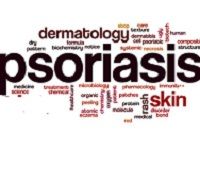Article
Linking Psoriatic Arthritis and Cancer: Studies Differ
Author(s):
A retrospective analysis of patient records has found a significant link between psoriatic arthritis and malignant cancer – particularly breast cancer.

A retrospective analysis of patient records has found a significant link between psoriatic arthritis and malignant cancer — particularly breast cancer.
Investigators reviewed a population-based cohort of 217 psoriatic arthritis patients and 434 other patients who were matched by age and sex. They compared malignancy rates using unadjusted Cox models.
Psoriatic arthritis patients were significantly more likely than control group patients to have malignant cancers (hazard ratio (HR) for all cancers except non-melanoma skin cancer (NMSC), 1.64; 95 % confidence interval (CI), 1.03—2.61). The association between psoriatic arthritis and breast cancer was particularly strong (HR, 3.59; 95 % CI 1.22–10.61).
Investigators also looked for a specific association between psoriatic arthritis and NMSC, which has been strongly linked to psoriasis by previous research. They found a tendency toward increased risk, but not a significant tendency (HR, 1.23; 95 % CI 0.72—2.09).
“Malignancy is a major cause of death in patients with inflammatory disease. [Previous research has shown] the risk of individual malignancies is altered in some inflammatory diseases, such as rheumatoid arthritis and psoriasis,” the study authors wrote in Clinical Rheumatology. In this study, they concluded, “The overall incidence of malignancy, as well as the risk of breast cancer, was higher in patients with psoriatic arthritis than in the general population.”
At least 1 previous study has looked to see whether psoriatic arthritis is associated with elevated rates of cancer, but it came to the opposite conclusion.
A 2008 paper that appeared in Arthritis & Rheumatism reported on 665 psoriatic arthritis patients treated at the University of Toronto between 1978 and 2004. Some 68 (10.2%) of the patients developed some form of malignancy at an average age of 62.4 years. Investigators compared that to incident cancer rates in the general population and found no link between psoriatic arthritis and cancer (standardized incident ratio [SIR], 0.98; 95% CI, 0.77-1.24).
Cancer type-specific SIRs were 0.69 (95% CI 0.26-1.83) for hematologic cancers, 0.88 (95% CI 0.46-1.69) for lung cancer and 0.65 (95% CI 0.29-1.44) for prostate cancer in men. The only cancer to appear in (almost significantly) higher levels among psoriatic arthritis patients than in similar members of the general population was breast cancer in women (SIR, 1.55; 95% CI, 0.92-2.62).
“Our study is the first to examine malignancy rates in a large, prospectively followed cohort of patients with clearly established psoriatic arthritis,” the authors of that study wrote. “Importantly, neither joint activity nor medication use was associated with an increased cancer risk in our psoriatic arthritis patients. These findings differ from those in rheumatoid arthritis, but are consistent with the known data regarding other seronegative disorders (such as ankylosing spondylitis). These data may serve as background information for the calculation of risk associated with biologic agents.”
There are, however, several studies that have found a significant link between psoriasis and incident cancer.
A 2014 paper published by the British Journal of Dermatology, for example, looked at malignancy rates among 40,987 American psoriasis patients. The overall cancer rate in those patients was 20% greater than the cancer rate for the general population. The rate of NMSC was 65% greater for psoriasis patients than for the general population.
Related Coverage:
- Jerry Bagel: Addressing Comorbidities in Plaque Psoriasis
- Biosimilar of Enbrel, a Popular Arthritis and Inflammation Drug, Receives FDA Approval
- Psoriasis Severity Escalates Risk for Aortic Aneurysm





